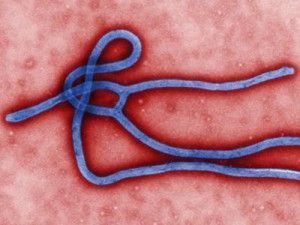Global Travel Task Force Launched To Monitor Ebola Virus Disease Outbreak
The risk of transmission of Ebola virus disease (EVD) during air travel is low, according to a joint statement on travel and transport in relation to Ebola outbreak.
 The joint statement was released by the World Health Organization (WHO), the International Civil Aviation Organization (ICAO), the World Tourism Organization (UNWTO), Airports Council International (ACI), International Air Transport Association (IATA) and the World Travel and Tourism Council (WTTC) who have set up a Travel and Transport Task Force to monitor the situation and provide timely information to the travel and tourism sector as well as to travelers.
The joint statement was released by the World Health Organization (WHO), the International Civil Aviation Organization (ICAO), the World Tourism Organization (UNWTO), Airports Council International (ACI), International Air Transport Association (IATA) and the World Travel and Tourism Council (WTTC) who have set up a Travel and Transport Task Force to monitor the situation and provide timely information to the travel and tourism sector as well as to travelers.
The current Ebola virus disease outbreak is believed to have begun in Guinea in December 2013 and now involves community transmission in Guinea, Liberia, Sierra Leone and recently Nigeria.
According to the statement, unlike infections such as influenza or tuberculosis, Ebola is not spread by breathing air (and the airborne particles it contains) from an infected person. Transmission requires direct contact with blood, secretions, organs or other body fluids of infected living or dead persons or animals, all unlikely exposures for the average traveler.
“Travelers are, in any event, advised to avoid all such contacts and routinely practice careful hygiene, like hand washing,” the statement read.
The task force informed that most infections in Liberia, Guinea and Sierra Leone, are taking place in the community when family members or friends take care of someone who is ill or when funeral preparation and burial ceremonies do not follow strict infection prevention and control measures. A second important place where transmission can occur is in clinics and other health care settings, when health care workers, patients, and other persons have unprotected contact with a person who is infected.
It is important to note that a person who is infected is only able to spread the virus to others after the infected person has started to have symptoms. A person usually has no symptoms for two to 21 days (the “incubation period”). Symptoms include fever, weakness, muscle pain, headache and sore throat. This is followed by vomiting, diarrhoea, rash, and in some cases, bleeding.
“Non-affected countries need to strengthen the capacity to detect and immediately contain new cases, while avoiding measures that will create unnecessary interference with international travel or trade,” the statement read.
WHO does not recommend any ban on international travel or trade or travel restrictions and active screening of passengers on arrival at sea ports, airports or ground crossings in non-affected countries that do not share borders with affected countries.





